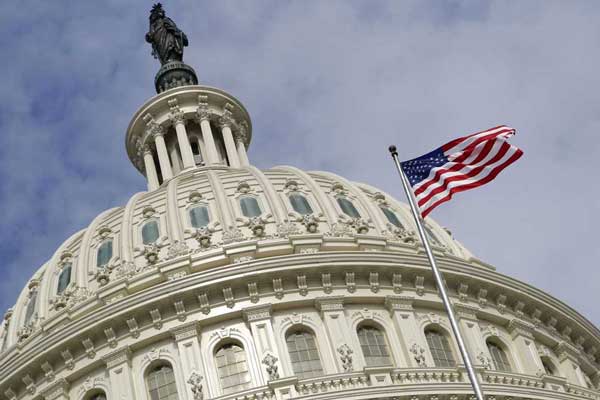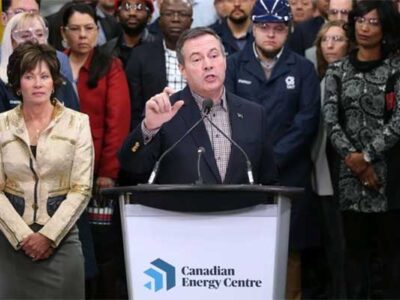The results of the US midterm elections are still coming in, but it is already clear that the Democrats have won back control of the US House of Representatives but failed in their attempt to do the same in the Senate.
Reuters says this gives Democrats “the opportunity to block Trump’s agenda and open his administration to intense scrutiny”.
However, eyes were also on a number of key votes that could influence energy and climate policymaking throughout the US, both at state and federal level.
Axios notes that Carlos Curbelo, a Republican leader on climate, has lost a tight race in Florida:
“The outcome represents a loss for the Climate Solutions Caucus, a bipartisan House caucus Curbelo founded in 2016.”
MotherJones also says the caucus is now “in doubt”.
The Hill reports that voters in Colorado have rejected a ballot measure that “would have imposed aggressive new restrictions on where oil and natural gas companies could drill and frack”, whereas Vox says that Florida has voted to ban oil and gas drilling in state waters.
The Hill also reports that voters in Washington state have rejected a proposed carbon tax that would have been the first such levy in the nation:
“The policy would have been an effort to fight climate change by mandating that companies using or selling fossil fuels pay taxes equal to $15 per metric ton of carbon, an amount that would rise in future years. The money would have paid for clean air and water projects, as well as community health initiatives…The battle over Washington’s carbon tax got international attention and national funding during the campaign season. Supporters spent at least $12m, and opponents spent more than $25m.”
Meanwhile, Joe Romm writing on the ThinkProgress website says that “strong advocates for clean energy defeated Republican opponents across the country”.
He adds: “With midterm election results still coming in late Tuesday night, several decisive victories pointed to a clear trend: candidates who embraced policies to fight climate change and expand clean energy won the favor of voters…Hopefully, the results of the 2018 election will send a powerful signal to politicians of all parties that the voters want to see progress on climate action and clean energy.”
CNN says that Alexandria Ocasio-Cortez‘s win in New York means she will become the youngest woman ever in Congress at the age of 30.
The Democrat has been a strong advocate for action on climate change during her campaign.
Bloomberg says Democrats are planning to bring back a House committee on climate change. This will giving them a platform to spotlight an issue on which polls show Trump is out of step with the public.
House minority leader Nancy Pelosi will ask her colleagues to reconstitute the select committee, which was started by her 11 years ago.
The Select Committee on Energy Independence and Global Warming was dissolved by Republicans in 2011 after the party gained control of the House.
The committee as it was then was not authorized to advance its own bills, but it used dozens of hearings to evaluate advancements in renewable power and the consequences of climate change.
Bloomberg writes, paving the way “for broad legislation to create a cap-and-trade system for carbon dioxide emissions”, although the legislation eventually faltered in the Senate.
Elsewhere, analysis of the implications of the US mid-terms for the climate continues.
The Atlantic finds that “the GOP just lost its most important climate moderates”.
In a feature for Grist, Eric Holthaus writes:
“Most of the climate-related coverage of this week’s midterm elections was pretty pessimistic. But if you dig down to the state level…the results were much brighter, even hopeful”.
Holthaus identifies six states where the election has cleared the way for “bold climate policy”.

















Comments